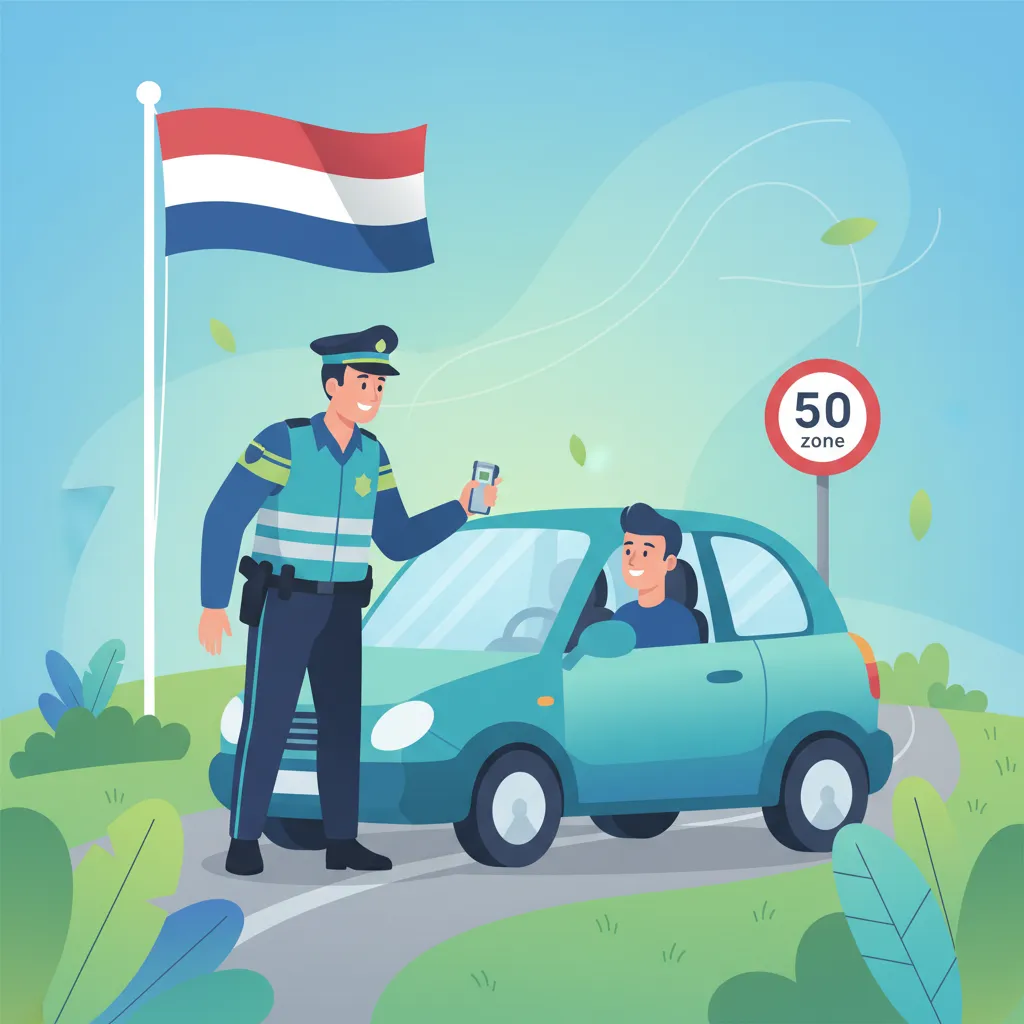Driving under the influence of alcohol or drugs is a critical safety concern in the Netherlands. This unit prepares you for the theory exam by covering the legal Blood Alcohol Concentration (BAC) limits, the detrimental effects of impairing substances on driving ability, and the strict enforcement procedures and penalties you could face. Mastering these rules is essential for responsible driving and exam success.

Browse all lessons that make up Alcohol, Drugs, and Driving. Each lesson focuses on specific topics, learning objectives, and core concepts, helping you build essential knowledge and follow a clear, structured progression toward your study goals in the Netherlands.
This lesson details the legal limits for alcohol consumption when driving. You will learn that for experienced drivers (who have held their license for more than five years), the BAC limit is 0.5 promille. For novice drivers, a stricter limit of 0.2 promille applies, which effectively means a zero-tolerance policy. The content explains how these levels are measured by police using breathalyzer tests and the factors that can influence a person's BAC, stressing that the only safe approach is not to drink and drive.
This lesson explores the physiological and cognitive effects of alcohol on a driver. You will learn how alcohol acts as a depressant on the central nervous system, leading to a measurable decrease in reaction speed, blurred vision, and a loss of coordination. The curriculum explains how alcohol impairs judgment, often leading to increased risk-taking and a failure to perceive hazards. Understanding these dangerous effects reinforces the critical importance of separating drinking from driving completely.
This lesson extends the topic of impaired driving to include illegal drugs and certain medications. You will learn that the Netherlands has a zero-tolerance policy for driving under the influence of many illegal substances, enforced with saliva tests. The curriculum also highlights the importance of checking for warnings on prescription and over-the-counter medicines, often indicated by a yellow sticker, as many can cause drowsiness or impair concentration. The driver is always responsible for ensuring they are fit to drive.
This lesson outlines the significant penalties for driving under the influence in the Netherlands. You will learn about the scale of fines, the potential for an immediate driving ban (rijverbod), and the circumstances under which a driver's license can be suspended or revoked. The curriculum also covers the mandatory and costly educational courses (like LEMA or EMG) that convicted drivers may be forced to attend to regain their driving privileges. A DUI conviction results in a criminal record, which can have long-lasting personal and professional consequences.
Explore high-intent keywords and long-tail search topics learners use when researching Alcohol, Drugs, and Driving. These terms reflect how people search for reliable study materials, structured explanations, and unit-level theory preparation support in the Netherlands.
Find clear answers to the most common questions learners ask about Alcohol, Drugs, and Driving. Understand how the unit is organized, what learning goals it supports, and how it contributes to your study progression with structured explanations and practical guidance tailored for learners in the Netherlands.
In the Netherlands, the legal BAC limit is 0.5 promille (0.5‰) for experienced drivers aged 24 and over with a driving license for at least 5 years. For novice drivers (under 24 or with less than 5 years of experience), the limit is significantly lower: 0.2 promille (0.2‰). It is crucial to adhere to these limits to avoid severe penalties.
The stated BAC limits of 0.5‰ for experienced drivers and 0.2‰ for novice drivers apply to all vehicles requiring a Category B license, including cars. Professional drivers may have different regulations, but for the standard theory test, these are the primary limits you need to know.
Drugs, including prescription medication, illegal substances, and even some over-the-counter drugs, can severely impair driving abilities. Effects commonly include slowed reaction times, reduced coordination, distorted perception, drowsiness, and impaired judgment. Even small amounts can make driving unsafe and lead to serious accidents.
Driving under the influence in the Netherlands carries severe penalties. These can include hefty fines, immediate license suspension (sometimes for extended periods), and potential imprisonment, especially in cases involving accidents or repeat offenses. For novice drivers, a DUI conviction can also affect their status and require re-examination.
Police use breathalyzer devices to test for alcohol. If the breathalyzer indicates a potential issue or if there's suspicion of drug use, a saliva test may follow. Blood samples can also be taken in certain situations. Refusing these tests can lead to similar penalties as a failed test.
Yes, many prescription medications can affect driving ability by causing drowsiness, dizziness, or impaired concentration. Always check the medication's packaging or consult your doctor or pharmacist about potential side effects on driving. If a medication impairs your driving, you must not drive or ensure you are within legal limits if it contains alcohol and you are an experienced driver.
All included lessons
Lessons in Alcohol, Drugs, and Driving
See who benefits most from studying Alcohol, Drugs, and Driving. This overview explains how the unit supports different learning needs, what level of knowledge is helpful before starting, and how it fits into the overall study path in the Netherlands.
This unit is crucial for all learners preparing for the Dutch Category B driving theory test, especially those who may not be aware of the strict regulations surrounding alcohol and drug use while driving. It is also highly recommended for novice drivers, as the BAC limits are significantly lower for them, and for anyone needing a refresher on current Dutch traffic laws and the severe penalties involved.

See how Dutch Driving Theory B is structured, with key topics, learning objectives, and a step-by-step path for theory preparation in the Netherlands.
Explore all units and lessons included in this driving theory course.